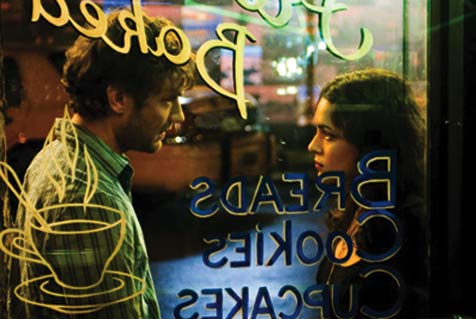My Blueberry Nights
Norah Jones, Rachel Weisz, and Jude Law star in a film written by Wong Kar-Wai and Lawrence Block and directed by Kar-Wai.

Hong Kong director Wong Kar-Wai seemingly painted his masterpiece with the powerfully evocative and aptly named In the Mood for Love in 2000. One of the sexiest movies without sex and an atmospheric feast for the senses, the film unfolds with a heightened appreciation of light, color, music, and sensory elements, casting unexpected illumination on the more traditional aspects of narrative and character development. Unfortunately, the rest of Wong’s filmography tend to be judged against it, and pale by comparison. That problem particularly afflicts Wong’s first American film, My Blueberry Nights, a well-meaning and visually dreamlike American road trip filled with beautiful musers and losers.
In a sense, My Blueberry Nights is fascinating as a study of the interface between a foreign art film director and his concept of what’s American. For Wong, it is reduced to the agreeably funky and languid cafes and bars in New York City, Memphis, and Las Vegas, where romantic sad sacks and Sallies lick wounds and inflict new ones.
No doubt the filmmaker’s natural attraction to the nuanced and moody music of Norah Jones led him to cast her in the film’s central role (although she is often the moving vehicle through which more dramatic and on-edge characters tell their tales). Jones makes a noble effort in front of the camera, and summons up some chemistry in scenes with pretty boy Jude Law. But Jones’s acting work is eclipsed by the volatile screen presence of notable actors such as Rachel Weisz, Natalie Portman, and David Strathairn.
We recognize similar aspects from In the Mood, as in the post-Fassbinder use of filming through windows, odd camera angles, and prisms of color. Meanwhile, the soundtrack benefits from the emotional stage-setting of Jones’s songs, a few well-placed slide guitar notes from Ry Cooder, and Cassandra Wilson’s cool version of Neil Young’s “Harvest Moon.” To coin an old adage, Wong’s art aspires to the quality of music, with as much interest in the abstract emotive content as any clean, linear storyline. While it has plenty of sensory vibe power-enough to keep us entranced and mostly forgiving of shortfalls-Wong’s American odyssey also gets lost in translation.



